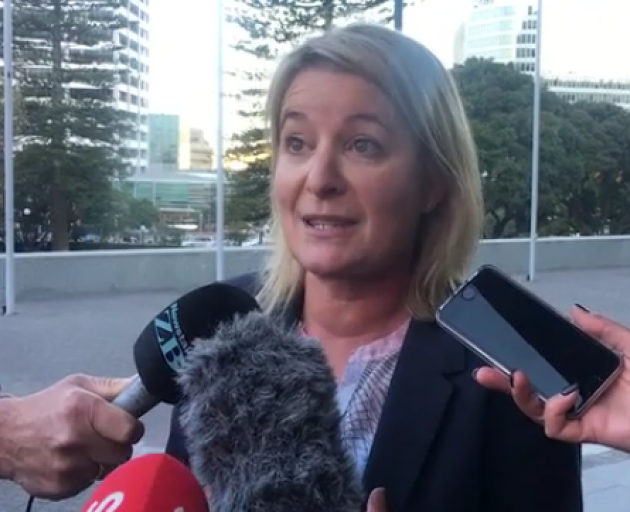
Woods called BP New Zealand managing director Debi Boffa to her Beehive office in Wellington this afternoon for a 'please explain' after Stuff was given an email revealing the company's pricing tactics in lower North Island towns.
Boffa spent about 30 minutes with Dr Woods.
"I remain unconvinced that people were possibly getting the fairest deal by the end of the meeting," the minister told reporters after the meeting.
"I think this is an example of a broken market. What we're seeing is an example of a fuel company, and I don't have any reason to believe this is isolated, where actually that price-setting is going on to take the prices up to the highest level rather than give people the best deal that they could expect in a competitive market."
Enabling legislation was being prepared so that the Government could immediately look at regulatory interventions as soon as the Commerce Amendment Bill, currently before Parliament, was passed, she said.

The amendments would allow the Commerce Commission to undertake market studies, and as soon as that bill was passed, the Government would direct the commission to do just that, Woods said.
Officials were also working on a preliminary cost-benefit analysis of potential regulatory interventions.
"We need to get to the bottom of this and we need the Commerce Commission to get those market study powers," Woods said.
Woods denied the Government was legislating for price and meddling in the market.
Stuff reported that in the leaked email, a BP pricing manager outlined a plan to counter dwindling sales in Otaki, where the price of fuel was 20 cents more expensive than in nearby Levin.
Instead of reducing the price in Otaki to make the station more competitive, the manager proposed an increase of the fuel price across the entire region, with the expectation that competitors would match the new price.
Boffa said BP needed to reduce heavy discounting on petrol prices in the Horowhenua-Kapiti region to meet its business model pricing levels.
On her way into the Beehive, she said BP operated in a highly competitive and dynamic environment in New Zealand.
"The things that are described in that email reflect that," Boffa said.
"The context around that email was that we were operating in a heavily, heavily discounted market and we were working to reduce that level of discounting for our business model."
Boffa said it was not fair to described BP's actions as cynical.
Following the meeting, BP issued a statement "to provide further context" in relation to the internal email.
Boffa said she was pleased to meet with Woods "and reassure her that BP is operating in a highly competitive and dynamic market and the actions referred to in the email reflect that.
“We fully appreciate that the tone of the email may have appeared blunt to an external audience who don’t have the full context. It was absolutely not our intent to cause any misunderstanding, nor is it the way we operate.
“At the time the email was written BP Connect Otaki was operating at a price point below a sustainable return. At the same time neighbouring BP Connect sites had been heavily discounted even further.
“The action BP then took was to re-adjust its prices to get closer to a sustainable return across the Kapiti/Horowhenua market.
“BP co-operated in full with the 2017 Fuel Market Financial Performance Study. We strongly support and welcome the recommendation made for the Commerce Commission to be granted additional powers to undertake further fuel market studies.
“We believe the Commerce Commission are the right people to carry out this piece of work. Their independence will provide greater assurance to Government and the New Zealand public that we are all paying fair and reasonable prices for our fuel,” Boffa said.
Earlier today, Prime Minister Jacinda Ardern said consumers were right to ask questions about whether the tactics were fair.
"I think there are questions for BP to be answering," she told reporters.
Ardern said it was necessary to build some evidence on what was happening before the Government made any changes.
"People certainly have a sentiment, a sense that things don't feel fair. We want to strengthen the Commerce Commission so they can do those market studies, build that evidence and based on that, then we'll make decisions," Ardern said.
National's transport spokesman Jamie-Lee Ross said hauling in BP just highlighted the much larger impact regional fuel taxes would have.
"Now the Government is saying there is nothing to stop fuel companies making consumers in places like Invercargill from paying for the Auckland regional fuel tax," he said.
Auckland Council this week voted in favour of an 11.5 cents per litre regional fuel tax to help pay for transport projects.
- NZ Herald, ODT online











